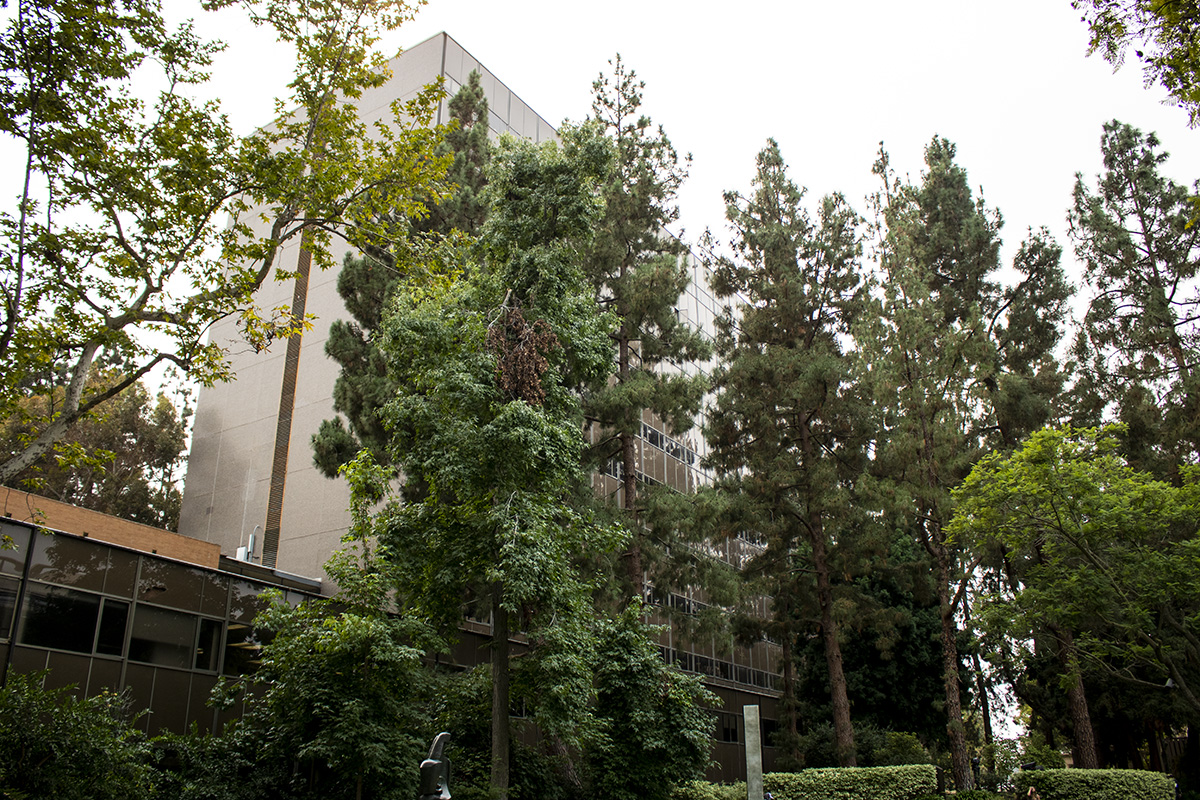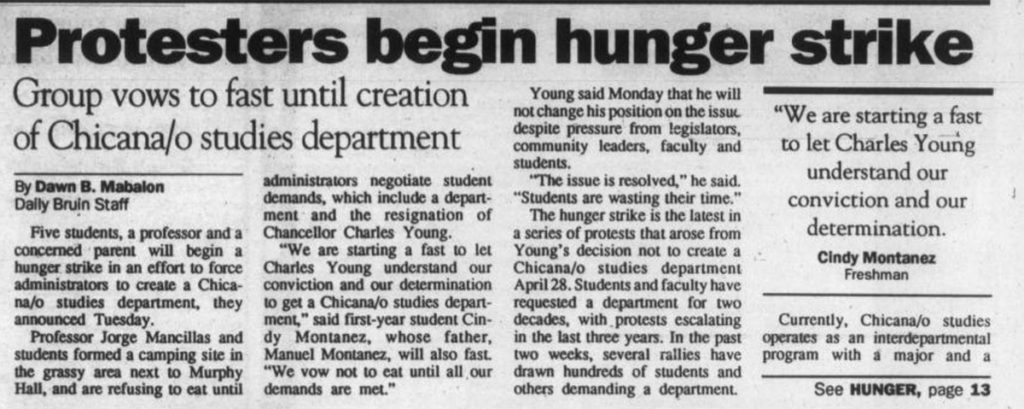Opinion: Bruins should be more knowledgeable about Hispanic diversity

Bruins must understand and celebrate Hispanic and Latino cultures not just during Hispanic Heritage Month, but also year-round. (Esther Li/Daily Bruin staff)
By Diego Rivera
Oct. 7, 2021 7:00 a.m.
“Gracias!” I said, accepting my taco from an employee of the food truck parked on the corner of Broxton and Le Conte avenues.
Was that weird to say?
For background, I’m not Hispanic. I’m Filipino – you’d know that just by looking at me. I still hoped, though, that my single-word exchange did something to brighten the taco truck worker’s evening.
Regardless, it would be ridiculous to pat myself on the back for knowing such a common phrase and considering my actions legitimate cultural awareness.
As Bruins, we live in a city called Los Angeles and consume Hispanic culture on a regular basis. When Hispanic culture plays such an integral role in our lives, it’s easy to accept it passively without acknowledging the people to whom these traditions belong.
Every year from Sept. 15 to Oct. 15, the United States celebrates the histories, cultures and contributions of Hispanic individuals with Hispanic Heritage Month. This time should serve as a reminder for non-Hispanic individuals to become more aware of the Hispanic community around them.
As someone who is not Hispanic, I write this column partly to hold myself accountable. I grew up in Houston, Texas, and my closest friends were just a few of the thousands of Venezuelans living in the city.
I regret not taking greater initiative to learn about the Hispanic community’s histories. In reflecting on my experiences, I hope to encourage others to actively educate themselves about the Hispanic community.
Part of acknowledging a community is understanding its history. Chon Noriega, the former director of the UCLA Chicano Studies Research Center, witnessed a hunger strike during his second year at UCLA when nine individuals sought to keep the Chicana/o studies department.

The group’s efforts paid off and resulted in the creation of the UCLA César E. Chávez Department of Chicana/o and Central American Studies, whose mission is to train scholars to research the life, history and culture of Mexicans in the United States.
LA may have a reputation for being progressive, but its reputation didn’t come from nowhere. It is the activism from minority groups like the hunger strike protesters that manifested into visible results of progress like the Chicano Studies Research Center.
It’s not just history that matters. It’s important to understand the issues the Hispanic community continues to face.
Chancellor Gene Block said in a statement that UCLA plans to become a Hispanic-Serving Institution by 2025. An HSI is any higher education institution where Hispanic enrollment is a minimum of 25% of the total enrollment.
This commitment is long overdue, as 48.6% of LA County residents are Hispanic or Latino according to the U.S. Census. UCLA’s total student population is 23.1% Hispanic/Latino, not even reaching the minimum amount to qualify as an HSI and nowhere near LA County’s percentage.
Being an HSI will benefit the Bruin community beyond enrollment numbers. Block said in his statement that research shows HSI designation strengthens interracial relations among students and improves the academic performance of students of color.
Underrepresentation of the Hispanic population is not limited to education. It’s an issue that extends to other fields such as medicine.
Miriam Villarreal, a third-year nursing student and co-president of the Latino(a) Nursing Student-Alumni Association, said in an emailed statement that the lack of diversity at the bedside has contributed to disparities within the Latino community. The pandemic is a key example: Hispanic and Latino individuals have COVID-19 hospitalization rates three times greater than those of white individuals because of factors such as socioeconomic status and access to health care.
Villarreal added that it may feel like a burden breaking barriers that Hispanics and Latinos face in order to advance the health of the community since only 3.6% of registered nurses in the U.S. are Hispanic.
While these disparities are generalized to the entire Hispanic population, non-Hispanic Bruins also need to understand that the cultures within the community differ.
Vicente Avendano, a fourth-year biochemistry student and president of the Latin American Student Organization, said the organization tries to not generalize Latin American culture as a whole. LASO does this by hosting meetings where members learn about different Latin American cultures and how other members are affected by their Latin American heritage.
Avendano also makes sure to acknowledge the importance of music at club meetings.
“Latin American music is a huge part of our culture, and we listen to it a lot at our meetings and events,” Avendano said. “We obviously have some variety in the music, but we feel like it ties up the atmosphere that we want to create.”
Perhaps celebrating Hispanic Heritage Month is enough to argue that we are already doing our part to recognize Hispanic people, their cultures and their struggles, but that’s barely the first step. The Hispanic community faces systemic barriers and disparities that are important to address year-round.
But that doesn’t mean the Hispanic community should be defined solely by the issues it faces. Beyond the struggles of the Hispanic community lies a series of cultures and histories that are just as important to recognize.
“While (Hispanic Heritage Month) is presented as a celebration, it’s also a sign that we have a lot of work to do in terms of … a U.S. culture that can accurately reflect the full diversity of the population and the cultures that exist within it,” Noriega said.
Let’s do our part in learning about the people who have shaped our community – even after this month ends.


